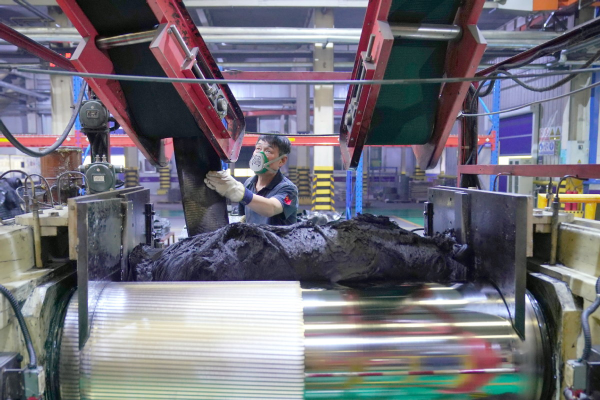FDI in China to surge as positives emerge

Measures to contain epidemic, stabilize investment will bear fruit, say experts
Foreign direct investment in China is set to increase this year on a yearly basis, as the signing of the world's largest free trade deal and other measures like the effective containment of the COVID-19 pandemic and steps to stabilize investment and foreign trade continue to bear fruit, experts said on Monday.
In addition to the country's Foreign Investment Law, shortened negative lists for foreign investment and other supporting regulations that came into force this year, the signing of the Regional Comprehensive Economic Partnership-the world's largest free-trade deal, will boost FDI flows to China in the long run, and further reinforce the nation's industrial and supply chains, said Wei Jianguo, vice-chairman of Beijing-based China Center for International Economic Exchanges.
His comments came after the Ministry of Commerce said that China's actual use of foreign capital rose by 18.3 percent on a yearly basis to 81.87 billion yuan ($11.83 billion) in October, marking the seventh consecutive month of positive growth in foreign direct investment.
FDI in China grew by 6.4 percent year-on-year to 800.68 billion yuan between January and October. In dollar terms, it increased by 3.9 percent to $115.09 billion.
"Global companies are satisfied with China's enhanced efforts in fighting the contagion and the efficient holding of the third China International Import Expo in Shanghai earlier this month," said Gao Lingyun, a research fellow at the Institute of World Economics and Politics of the Chinese Academy of Social Sciences.
The notable recovery of China's foreign trade, FDI inflows, social consumption and the holding of the CIIE reaffirm the country's strong commitment to continuous opening-up and demonstrate its desire to share its market opportunities with the world and contribute to global economic recovery, said Gu Chunyuan, chairman of ABB China.
As China is pushing forward high-quality economic development, the foreign investment structure has also been continuously optimized, transforming from the labor-intensive industry to high-tech and service sectors.
China's services sector attracted 625.79 billion yuan of FDI in the first 10 months of this year, up 16.2 percent on a yearly basis and accounting for 78.2 percent of the country's total use of foreign capital, while that in the high-tech services sector grew by 27.8 percent, according to the Ministry of Commerce.
Sang Baichuan, an economics professor at the University of International Business and Economics in Beijing, said global companies are no longer content with exporting their products from China to other countries. They are keen to adopt new business models to thrive in China in the long run.
"China's fast-growing digital economy has sharpened the country's competitive edge in industry and created favorable conditions for foreign businesses to invest in more areas," he said, adding that 4G-and 5G-based digital infrastructure is a solid foundation that facilitates rapid growth of artificial intelligence, big data and diversified online services.
Schott AG, a German producer of specialty glass and supplier of pharmaceutical packaging, plans to ramp up its production capacity in China to meet growing demand during the country's 14th Five-Year Plan period (2021-25).
Frank Heinricht, the company's CEO and chairman, said the company will invest 320 million euros ($380.32 million) globally in the 2020 financial year. He explained that the investment will be largely spent on expanding its manufacturing capacity in China.
Owing to China's fast pace of industrial upgrading and urbanization, the German company's sales revenue grew by 11 percent year-on-year to over 261 million euros in its 2019 fiscal year.
"China is expected to become our most important market by 2025," said Heinricht, adding the company will start operations at a $69.14 million worth of pharmaceutical glass tubing plant soon in Jinyun county, Zhejiang province.
Supported by the digital management system, the facility will be able to produce around 20,000 metric tons of specialty glass every year, translating into 4 billion vials.
Invest in China Copyright © 2024 China Daily All rights Reserved
京ICP备13028878号-6
 京公网安备 11010502032503号
京公网安备 11010502032503号





